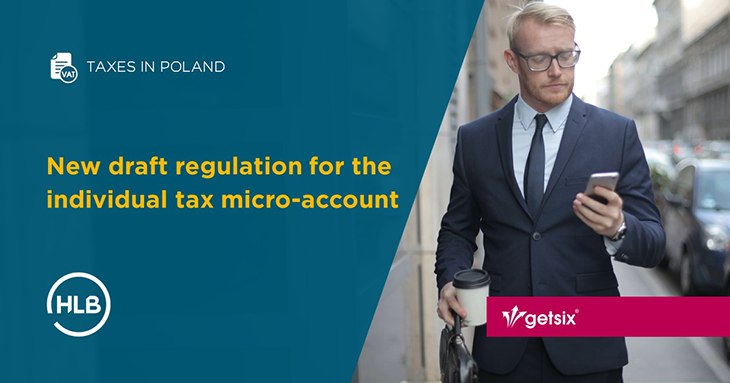New draft regulation for the individual tax micro-account
On November 14, 2023, the Ministry of Finance has published a draft regulation on its website, that expands the catalogue of types of receivables that can be paid via tax micro-accounting. According to the information provided by the Ministry of Finance, the draft was prepared to update the list of payments. The draft is currently in inter-ministerial consultation and public consultation. The proposed effective date of the regulation is January 1, 2024.
The new draft regulation envisages expanding the scope of receivables that need to be settled by means of tax micro-accounting to include the following elements:
- CIT-8FR – resulting from the declaration of the amount of income (revenue) achieved and the tax due on the income of a family foundation.
- PIT-PZ – resulting from the obligation to pay a lump sum tax on income of foreign natural persons transferring their place of residence to the territory of the Republic of Poland.
- VAT-14 – resulting from the obligation to pay tax on goods and services in the case of intra-Community acquisition of goods, as referred to in Article 103(5a) of the Act of March 11, 2004, on tax on goods and services.
- POG-P – resulting from the declaration for the tax on games.
- POG-4 and POG-5 – Payments resulting from the submission of declarations for the tax on games.
- GHD-1 – resulting from information on surcharges in number games, cash lotteries, and telebingo games.
The Ministry of Finance plans to update the descriptions of some payment titles. The project’s creators have also decided to systematize individual payment categories, so that taxes are listed first, followed by payments for number games, cash lotteries, telebingo games, solidarity contributions, and finally, fees.
In the justification of the project, the Ministry of Finance notes: “The proposed regulation does not contain provisions that constitute burdens, but only facilitates it for entities making payments of taxes, fees, or non-tax budgetary liabilities, the payment of which is made using the individual tax micro-account to fulfil their existing obligations, i.e. to ensure the efficient functioning of individual accounts by defining a catalogue of fees covered by the tax micro-account. This is a beneficial solution for those obliged. Thus, the proposed regulation has a positive impact on the activities of micro-entrepreneurs, small and medium-sized enterprises.”
If you have any questions regarding this topic or if you are in need for any additional information – please do not hesitate to contact us:
CUSTOMER RELATIONSHIPS DEPARTMENT

ELŻBIETA NARON
Head of Customer Relationships
Department / Senior Manager
getsix® Group
***





